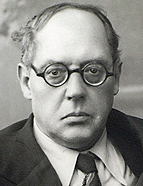

After 5 October, he moved closer to the moderate wing of António José de Almeida, drafting the manifesto of the Evolutionist Party and collaborating in the creation of its programme in 1912. At the time, his interventions often focused on what was one of the focal points of evolutionary criticism: the debate on strengthening the role of the president of the republic and the powers to dissolve Congress, as a counterbalance to excessive parliamentarism (Política portuguesa. Elementos para a solução da crise nacional [Portuguese politics. Elements for the solution of the national crisis], 1913). This was an interesting position when compared to his assessment, a few years later and now from a monarchist perspective, of the Sidonist regime: “Republicans cannot truly be presidentialists [...]. Presidentialists are not pure republicans, they are monarchist republicans.” (A situação política, 1918, p. 31).
From 1913 onwards, the year in which he unsuccessfully attempted to compete for a position at the Faculdade de Direito [School of Law] in Lisbon, he began to rapidly distance himself from republicanism. In 1914, he contributed to in Nação Portuguesa, the main organ of Lusitanian Integralism, prompting a curious clarification from the journal’s editorial staff, justifying the publication of an author who, despite “the curious paradox of still declaring himself a republican” (“O problema religioso” [The religious problem], Nação Portuguesa , no. 4, p. 105), was already considered doctrinally close. Already completely disenchanted with the regime and, in particular, with the Democratic Party, he wrote a harsh article in the newspaper República (“O partido dos escândalos” [The party of scandals], 12-6-1914 – which would open a deep crisis in relations between António José de Almeida and Afonso Costa and even lead the latter to challenge the Evolutionist leader to a duel), marking the beginning of his last major political shift. On the eve of the revolt of 14 May 1915, he fully embraced the monarchy (an option explained in the pamphlet A solução monárquica [The monarchical solution]), although he still collaborated briefly with the National League, a civic convergence project which, between 1915 and 1918, brought together figures from Catholic and monarchist circles, as well as evolutionary republicans and unionists.
This work is financed by national funds through FCT - Foundation for Science and Technology, I.P, in the scope of the projects UIDB/04311/2020 and UIDP/04311/2020.
